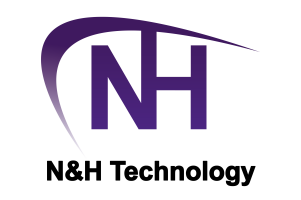Faster product cycles
Volkswagen shortens vehicle development from 54 to 40 months
Volkswagen is realigning its Technical Development in Wolfsburg: With Systems Engineering, Volkswagen aims to shorten the development of future vehicle projects by 25 percent - from 54 months to 40 months.
Volkswagen is convinced that the increasing connectivity of the vehicle, its desired seamless integration into the digital ecosystem and the focus on the user experience necessitate a redesign of the development process: cross-functional, with a consistent focus on software, customer requirements and the electric future platform SSP, system and function-oriented instead of component-oriented.
»If the car is increasingly becoming an electrically driven software product, its development must also change in all dimensions. We are making technical development more networked and more powerful by aligning our processes and organization to systems and functions instead of components. From hardware first to software first. In this way, we are shortening development times by 25 percent - in the future, vehicle projects will be created in 40 months instead of the current 54 months, from the moment the basic software architecture is in place,« says Thomas Ulbrich, Volkswagen Board Member for Technical Development.
»With the Campus Sandkamp development center in Wolfsburg, the transformation will also become visible to the outside world this year. To this end, we are investing 800 million euros and making the Sandkamp Campus the most modern automotive development center in the world. In this way, we are making it clear that TE is setting the pace in the transformation of Volkswagen into a tech company.«
Electric future platform SSP creates basis for mobility of the future
With a faster development process, a consistent focus on customer requirements and the targeted qualification of the workforce, Technical Development is setting the course for the mobility of the future - and creating the conditions for developing Trinity, a value-driven, fully electric and fully connected vehicle that is seamlessly integrated into the digital ecosystem.
To this end, Volkswagen is working on the SSP (Scalable Systems Platform), the Group's platform of the future: a powerful and scalable platform for the electric age. It is to be used for the first time at Volkswagen in 2026 in the Trinity project and will, in the long term, combine the MEB and PPE e-platforms. This will make the SSP the basis for all brands and models - in other words, the basis for more than 40 million Group vehicles.
Like the MEB, the SSP will be open to third-party suppliers. At the same time, it will enable the vehicle to be fully networked with its ecosystem, thus creating the conditions for fully automated driving (Level 4) and new usage-based business models. Digital Lifecycle Management (DLCM) will keep Volkswagen vehicles up-to-date in the future, even after they have been delivered.
Strengthening competencies through targeted qualification
With the realignment of Technical Development to networked, system- and function-oriented development processes, Volkswagen is also investing specifically in employee training and making them fit for the digital age. Several hundred employees have already qualified for new career fields in Technical Development. Thousands of employees are to follow in the coming years.
By 2030, around 4,000 employees will be qualified for significantly new job profiles (re-skilling), while a further 6,000 to 8,000 employees will receive extensive training (upskilling). The range of training programs extends from shorter learning units to broaden specific skills through to large-scale retraining programs. In this way, Volkswagen aims to safeguard employment at the Wolfsburg site in the long term.








